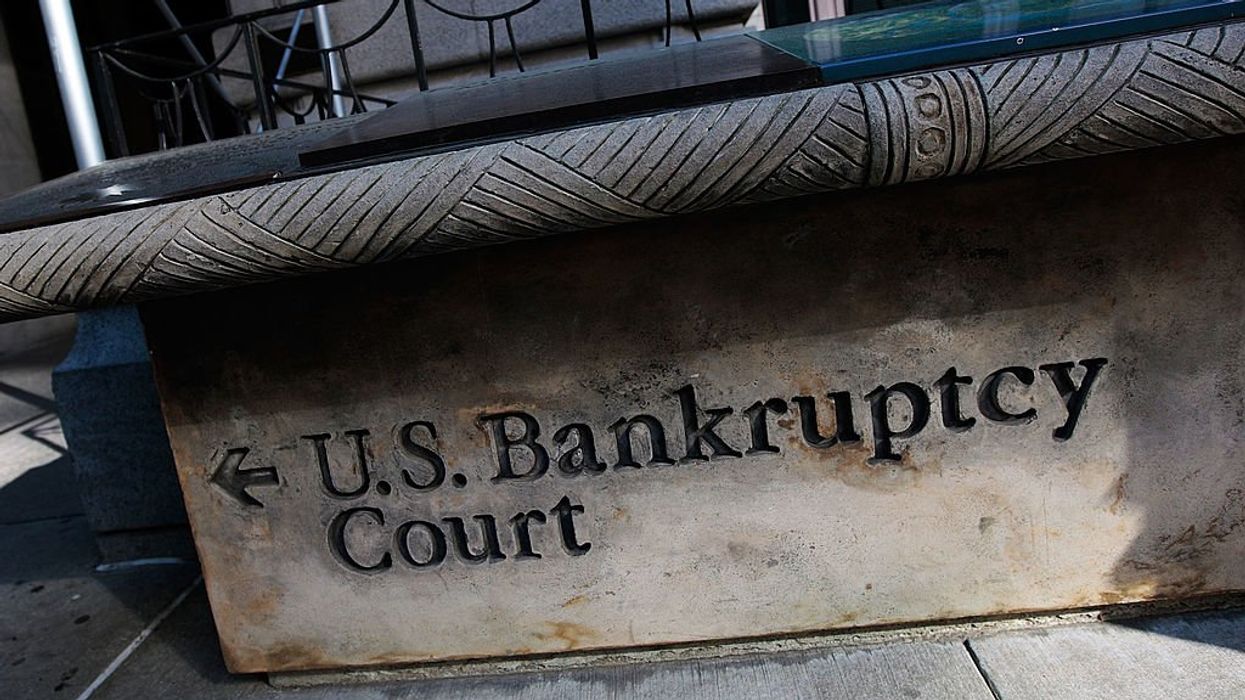GLENN: David French who is a senior fellow of the National Review, is joining us now. Hello, David, how are you?
DAVID: I'm good. How are you doing?
GLENN: Well, I've been better. I've been better.
Yesterday had to come as kind of a surprise to you because you're a guy who is -- is authoring some of the bills they were talking about yesterday.
DAVID: Well, yesterday, it was one of those moments when somebody takes an idea that you've been talking about, twists it, distorts it, misstates it in such a grotesque way that it's unrecognizable.
It was really an amazing moment. So you had Mike Pence talking about -- in a very responsible and sane and sober way, the concept of the gun violence restraining order.
GLENN: Right. Right.
DAVID: Which allows people to seek an order from a court. And with due process, with a hearing, when someone is exhibiting dangerous behavior, to allow temporary seizure of their guns when there's red flags. And the vast, vast majority of these shootings, there have been red flags, and a lot of times, people haven't had the tools to do anything about it. This changes that. And then Trump stepped in and said, no, no, take the guns first. Then due process.
And you just -- you know --
GLENN: He did say -- he said, you know, there is a different system. Take the guns first, and then due process. And I believe that system is fascism. Authoritarianism. Totalitarianism. Communism. I mean, there is another system, David.
DAVID: Right.
Yeah. Yeah. His views on due process are really interesting. So if you're a credibly accused wife beater in the White House, well, then due process. But if you're a law-abiding gun owner, then no due process. So it's a very strange system. It's a very strain of constitutional thinking there.
But, yeah, you know, look the bottom line is he's not drafting a bill. He's not proposing the bill. He doesn't really know about any of this --
GLENN: Yeah.
DAVID: -- in any detail.
GLENN: No. When he was saying that Toomey was afraid of the NRA, it shows, you have no idea. You have no idea.
DAVID: Yeah. Yeah. Well, you know, the thing that was stunning to me about -- well, I am on record many times for having low expectations of this president.
GLENN: Yes.
DAVID: But he underperformed even my low expectations yesterday. And the reason is that, the NRA has been probably his most loyal conservative friend. The NRA has been relentless for him. A lot of people have criticized the NRA for taking a turn -- perceived turn towards Trumpism, where they're promoting the president as much as they're promoting the Second Amendment. So the NRA has been ferociously loyal to Trump.
And yesterday, he not only said, hey, take the guns first, due process second, he -- he essentially said, no -- no concealed carry reciprocity. He made fun of a senator for being in that pocket of the NRA, or being scared of the NRA. And then he pulled the idea of an assault weapons ban, all in the space of about 30 minutes.
And my jaw hit the floor. It was an amazing thing to see.
GLENN: So, David, the -- a lot of people will say, nothing is going to come of this, so don't worry.
This was so jaw-dropping that -- I mean, I've said this for years, long before Donald Trump, you have to have a guy in the Oval Office, whose natural first instinct is constitutional. That is -- that it is freedom-based.
DAVID: Yeah.
GLENN: For instance, when you have a problem, who you know also didn't get due process? The Japanese as they were put on a bus for an internment camp. When there's trouble and you are not based in the Constitution, that -- that is -- that is a moment that could go horribly awry, as it has in the past here in America.
When the president says, well, I'm not really afraid of the NRA, I don't think in 2021, he'll be afraid of anybody. And if we have trouble, this is a giant red flag.
DAVID: Right. So not only is it a red flag on poor policy grounds. In other words, how does the president exercise the powers of his office? It's also, look, the bully pulpit matters.
You know, this is a nominal theory on the part -- many parts of the public, that what the president says doesn't really matter. Which is just a rationalization and an excuse. The bully pulpit matters. When you're talking about the person, when perhaps the greatest public platform in the world. And they're indifferent at best to the Constitution. They're obviously here, seem to really not care about the Second Amendment all that much. Those things matter, especially when the other side is locked in. I mean, the other side is locked in on messaging. It is locked in -- has extraordinary party discipline right now. I believe it was 156 of the 193 members of Congress signed on -- Democratic members of Congress signed onto the assault weapons ban legislation that was just introduced.
So the other side is focused and locked in. And, you know, when the bully pulpit is occupied by somebody who is not as focused -- focused -- not as locked in, and apparently indifferent to core constitutional values, that's a problem.
GLENN: We want to talk to -- we're talking to David French. We want to talk to him about a story he wrote in the Atlantic. What critics don't understand about the gun culture. We'll go there in a second.
GLENN: David French, who has just written an article for the Atlantic. What critics don't understand about the gun culture. And he really tried to reach out to the other side and said, look, I know there aren't people that don't understand guns or the gun culture. Let me try to demystify this a little bit so you can at least understand the other side. David, can you take us through this rather quickly?
DAVID: Yeah, absolutely.
See, what I wanted to do was talk to folks, the Atlantic readers are mainly progressives. And I wanted to walk them through how you -- of how a person enters gun culture. And how it begins often with an actual threat or a perceived threat, where you realize that the police can't protect your family in time. And how actually walking through that process of buying a gun, learning how to use a gun, going to concealed carry permit class, getting training, actually brings you into a new community of folks. And also changes your outlook on life in a significant and positive way.
And so I wanted people to understand that this isn't a product of, like, NRA lobbying or congressional actions. It's a product of people's lived experience and how they respond to threats to their safety and their family's safety.
It just -- I just wanted to connect people with sort of the real story of people's lives.
GLENN: Yeah. You know, I just had a friend of mine say yesterday, Glenn, I -- I mean, I'm not worried about my family. And I don't -- it's just not part of anything. I don't worry about any of this.
Well, some of us do.
DAVID: Yeah.
GLENN: And some people -- mainly Hollywood and people like me have the money to be able to have an armed security guy with him the whole time. But that's not the average person.
I mean, my daughter, you know, if she had a stalker, she would want a gun. And I will tell you this, I am -- I am somebody who felt I was not responsible enough to own a gun, what? Twenty years ago. And I had to -- you know, I had to have serious threats in my life. And the gun was the last step that I took myself.
And then I really took it seriously and became responsible enough to own a gun. I know everybody isn't like that, but they should be.
And in your article, you -- you point out that we were -- as gun owners, we're horrified by the -- the killer in -- you know, at the high school, having these guns. And all of the warning flags. And the system failed. And we were horrified here in Texas, when the system failed.
DAVID: Right. Right. Exactly. You know, there's this perception. Odd, strange. I mean, how evil do you think your fellow citizens have to be, to believe that you're indifferent to what happens in Texas? But you get that rhetoric all the time, that people who belong to the NRA have blood on their hands, they belong to a terrorist organization. When the fact of the matter is, as I related in my piece, I'm not someone who can afford armed security around my family. A guy came to our house. He blocked our driveway. He walked straight up to my wife and kids when they were in the backyard. And I was -- and the police and I were many minutes away, demanding to see me. He had an empty holster in his hip. He had just been driving slowly through any kids' school. So this kind of thing focuses the mind pretty -- pretty intensely. And that's what -- you know, it's those kinds of things.
And, look, there are a lot of people who are not in the public square, who are not out there tweeting and writing and doing TV appearances. Maybe it's an ex-boyfriend. Maybe they live in a dangerous part of time. You know, there are lot of reasons why people quite reasonably say, you know, when the police can't be there instantly. And the police can't be there everywhere. I kind of need a first line of defense, and that is not unreasonable at all.
GLENN: So I've got about 45 seconds here, David. Can you tell me -- what has the response been from those who read this?
DAVID: I would say, overwhelmingly positive. Of course, some people have been very angry. One person said it was like white privilege on steroids. Something like that.
GLENN: Whatever. Whatever.
DAVID: Yeah, but overwhelmingly positive. Not so much that they say, oh, I want to join -- I want to buy a gun. I get this.
GLENN: That's all we have to do. And, look, we're never going to convince, nor do I think we have to make the effort to go after the most staunch people. Because they're never going to change their mind. But we have to at least reach people so they hear the reasonable, rational argument on the other side. And we can learn from them. They can learn from us. And maybe we can pursue, you know, truly common sense things, that will -- will protect our families and our children in school. David French, thank you so much, appreciate it.
DAVID: Thank you.
GLENN: You bet.








